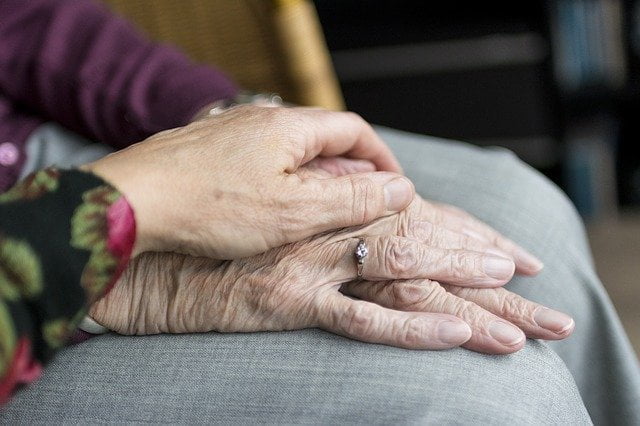Drug & Alcohol Rehab Hertfordshire & Near Hertfordshire
Quick links for drug and alcohol rehab in Hertfordshire
- Does Drug and Alcohol Rehab for Teens in Hertfordshire Work?
- Can I Recover From Addiction Without Help From a Drug and Alcohol Rehab in Hertfordshire?
- Do I Have to Tell My Boss About Attending Drug and Alcohol Rehab in Hertfordshire?
- Can I Force My Loved One to Go to Drug and Alcohol Rehab in Hertfordshire?
- What is Dual Diagnosis at Drug and Alcohol Rehab in Hertfordshire?
- Outpatient Drug and Alcohol Rehab in Hertfordshire
- What are the Alternatives to Going to Drug and Alcohol Rehab in Hertfordshire?
- What are Some Tips for Choosing the Right Drug and Alcohol Rehab in Hertfordshire?
- How Long Does Drug and Alcohol Rehab in Hertfordshire Last?
- What Therapies are Offered at Drug and Alcohol Rehab Hertfordshire?
Addiction is an extremely serious issue across the UK and Hertfordshire is no exception. Many people enter drug an alcohol rehab in Hertfordshire to get them on a safe path to recovery.
Rehab Recovery offers free and confidential advice for people suffering from drug and alcohol addiction in Hertfordshire.
Although we do not directly provide rehab treatment ourselves, we assist thousands of individuals in making the correct route to sobriety.
When you contact Rehab Recovery, we carry out a free initial assessment. Here, we determine the nature of your addiction, your personal needs, and your personality profile.
Based on this information, we then draw on our database of hundreds of rehab treatment providers in Hertfordshire and match your needs to the most appropriate providers.
This ensures the chances of rehab treatment success are maximised.
Rehab Recovery offers this service entirely free of charge. Rehab Recovery is run by volunteers who have defeated their own addiction to drugs and alcohol in the past. This means we are highly understanding and empathetic to your situation.
We know seeking out professional rehab help isn’t easy. You may not even fully acknowledge the need for professional treatment.
Our initial assessment seeks to help you overcome your initial fears and resistance, whilst also explaining the exact reasons why professional rehab treatment is required.
Alcohol and drug rehab helps with a wide variety of addictions such as:
- Alcohol addiction or binge drinking [1]
- Benzodiazepine addiction
- Buprenorphine addiction
- Cannabis use disorder
- Cocaine addiction
- Opioid use disorder
- Crack cocaine dependence
- Heroin addiction
- Ketamine addiction
- Behavioural addictions such as gambling addiction
Start your recovery journey at a rehab in Hertfordshire today by calling our expert team on 0800 088 66 86
Do I Need a Detox at Drug and Alcohol Rehab in Hertfordshire?

Two people at drug and alcohol rehab in Hertfordshire holding a sapling
Only certain substances require a medical detox intervention at rehab. The main ones are opiates (such as heroin), benzodiazepines (such as diazepam) and alcohol. All of these substances require a medical detox, probably with the use of medication.
Other common drugs, such as cocaine, cannabis, ecstasy, and speed, do not require a detox at rehab. Instead, you will focus on therapies to help support your withdrawal.
However, it is always better to be under supervision at rehab as you withdraw, due to potential psychological symptoms which may need to be managed.
This is why it is always better to go through withdrawal and/or detox at a rehab detox clinic. Going cold turkey from drugs that require detox is always very dangerous. [56]
Alcohol detox often requires medical assistance at rehab using medicines like Chlordiazepoxide (brand name Librium), Acamprosate [57] and Naltrexone [58] alongside specific antidepressants [59] or anti-anxiety medications [60] in order to reduce alcohol withdrawal symptoms.
It is important to treat your alcohol addiction at an alcohol rehab in Hertfordshire as it can result in delirium tremens and Wernicke encephalopathy.
Start your recovery journey at a rehab in Hertfordshire today by calling our expert team on 0800 088 66 86
How Do I Hold an Intervention for Drug and Alcohol Rehab in Hertfordshire?

Black and white photo of a therapy group hugging at a drug and alcohol rehab in Hertfordshire
In many cases, it may take an intervention for a person in addiction to accept [51] that they need professional rehab help or to even acknowledge that they have an addiction of any kind.
This might be down to a misplaced sense of pride or shame, or because they don’t know if they have what it takes to get through rehab treatment.
Whatever the reasons, an intervention is an effective way to get through to such a person, and at Rehab Recovery, we can provide advice on guidance on how to go about this.
One way of handling this is by sitting down with the person as a group or a family, and explaining to them one by one how their addiction is hurting themselves and others, and why they believe they should attend rehab.
Another way of intervening in addiction is through the CRAFT method, [53] which prefers positive reinforcement as an incentive, offering rewards to the person for making positive changes in their life that may lead to them wanting to attend rehab.
We can provide more information about either of these methods or drug and alcohol rehab, free of charge. If you’re concerned about someone you know in Hertfordshire, please call us for a free consultation.
For advice and guidance in conducting an intervention or more information about rehab in Hertfordshire, call us on 0800 088 66 86
Does Drug and Alcohol Rehab for Teens in Hertfordshire Work?

Person looking downcast before rehab
Drug and alcohol rehab is suitable for all ages and anyone who is affected by substance use disorder or wants to find help before their substance use gets out of control.
This includes teenagers, who can benefit from inpatient or outpatient rehab if they are falling into or are within the grips of an addiction.
However, due to factors such as education, the severity of teenage addiction and the need for parental support, over 90% of teenage addiction rehab treatment is outpatient. [6]
There are dedicated drug and alcohol rehab centres in Hertfordshire which cater for teenagers usually between the ages of 13-18, so if a teenager attends an inpatient rehab programme then they will be placed in one of these centres.
82% of teenagers successfully complete addiction treatment, whether inpatient or outpatient, so the success rate for teen addiction rehab treatment is high.
Most teenagers in addiction rehab treatment in Hertfordshire will receive psychosocial treatment to help with their substance misuse as well as any mental health, social or behavioural issues they might be struggling with. [7]
Overall addiction rehab treatment is very similar for teenagers and adults, however there may be different types of support available for teens such as educational support, help with bullying and support with peer pressure.
Outpatient rehab treatment is available either as age-specific treatments (e.g. group therapy for teenagers) or for all ages (e.g. 12 step programmes for all ages).
If you are worried about your teenager, or if you are a teenager yourself, then getting help now at rehab is important as the longer you let your addiction progress the more difficult it will be to recover from. [8]
Adolescent drug and alcohol rehab services in Hertfordshire are a great option for young teenagers who are struggling with substance misuse, and has been shown to help teenagers to manage their substance use as well as improve significantly in other areas such as academics, family relations and overall well being. [9]
Start your recovery journey at a rehab in Hertfordshire today by calling our expert team on 0800 088 66 86
Can I Recover From Addiction Without Help From a Drug and Alcohol Rehab in Hertfordshire?
It is not recommended to try to recover to alcohol and/or drug addiction without the support of a professional addiction rehab team.
This is due to the potential dangers you might encounter in withdrawal, as well as the lowered success rate in people found for people who do not get professional support in rehab recovery.
For those who do recover independently, they are also more likely to relapse and less likely to achieve 3 year remission than those who have sought out professional addiction rehab treatment. [10]
This is likely to be due to a few factors, including the challenging detox period, the lack of support network, the absence of professional rehab treatments and therapies as well as the absence of aftercare.
If you seek professional alcohol and drug addiction treatment in Hertfordshire, then you will be assessed by a professional to see what kind of treatments will be most beneficial for you and to draw up a personalised rehab treatment plan.
This can be incredibly useful, as your rehab treatment plan will be created to give you the best chance of success by someone with an expertise in addiction. This is something that is only achieved via professional addiction treatment.
Within this rehab treatment plan, you will undergo addiction therapies which will teach you key skills such as how to avoid relapse and how to cope with triggers as well as exploring the underlying causes of your addiction and any comorbid conditions which may impact recovery.
Having a safe detox at rehab is another reason why it is best to seek professional help, as you can be monitored by health professionals, prescribed medications if needed to lessen withdrawal symptoms and cravings and supported through a challenging time.
If you are wanting to recover from an alcohol or opioid addiction (e.g. a heroin addiction) then an inpatient or professionally managed rehab detox at least is highly advised. This is due to the risks of withdrawal, as withdrawal symptoms can be very severe and even deadly if not managed properly.
Without a professional detox, a professional rehab treatment plan with a course of addiction therapies and an aftercare plan complete with relapse prevention strategies, addiction recovery is likely to be a lot more difficult alone.
The support is available, no matter what your situation is, whether you want NHS or private rehab treatment in Hertfordshire, or how far along in your addiction you are.
There are a range of drug and alcohol rehab options in Hertfordshire including at home medical detox, inpatient addiction treatment and outpatient support groups. Reach out to Rehab Recovery today and our team can help you reach out for professional addiction recovery treatment.
Start your recovery journey at a rehab in Hertfordshire today by calling our expert team on 0800 088 66 86
Do I Have to Tell My Boss About Attending Drug and Alcohol Rehab in Hertfordshire?

Person taking notes at a drug and alcohol rehab clinic in Hertfordshire
You do not have to tell your boss if you are entering into alcohol rehabilitation, however it is advisable to be honest about your alcohol addiction treatment.
This is because it will make it a lot easier if you need to book time off for treatment or adjust your work schedule because of rehab commitments, and it can also help your workplace to support you in ways that they can.
If you create a false reason for needing time off then it might be challenging if evidence is requested, and it can also make rehab recovery more challenging if you are hiding it from your manager.
Addiction is also classified as a medical issue, and therefore you might also be entitled to sick pay during our addiction rehab treatment.
Make sure that you make clear that this is a medical treatment that you need, and that you can provide evidence of the need for addiction rehab via a letter from a doctor/healthcare professional. This also means that it is classified medical information and therefore cannot be discriminated against or discussed with other employees if this is a concern of yours.
So although you are under no obligation to tell your manager that you are attending addiction rehab, and you have every right to keep your addiction treatment private, it could be much more beneficial to be open about it to your boss.
Start your recovery journey at a rehab in Hertfordshire today by calling our expert team on 0800 088 66 86
Can I Force My Loved One to Go to Drug and Alcohol Rehab in Hertfordshire?

Couple hugging in a field following drug and alcohol rehab in Hertfordshire
You cannot force your loved one to go to rehab, however, you can help them see the benefits of rehab and support them in their addiction recovery.
The CRAFT approach is the primary method of intervention that families and loved ones of addicted people are advised to use when guiding a loved one into rehab addiction treatment in Hertfordshire.
CRAFT focuses on positive reinforcement and behaviour change, helping the person to want to go to rehab without forcing them or motivating them through traditional intervention methods.
Often the family members and loved ones of a person struggling with addiction find it hard to know how to help their loved one and find it difficult to even discuss addiction rehab with them due to being confronted with denial, feeling accusatory or being met with anger and frustration.
The CRAFT approach allows family members to encourage positive change and rehab attendance but still support and maintain a good relationship with their loved one.
It also helps family members and loved ones to understand addiction and recognise any small steps towards rehab recovery that the person is making.
This has been shown to be a very successful method of intervention, with between 70% and 80% of reluctant substance users seeking rehab treatment after a CRAFT intervention. [14]
It also helps to strengthen relationships between loved ones which may have been weakened due to the addiction, and also helps build up a positive image of rehabilitation for the person struggling with addiction, rather than viewing it as a scary last resort.
You can contact a professional interventionist in Hertfordshire regarding the CRAFT method and also research CRAFT intervention techniques yourself to help increase your knowledge of addiction and how to support and motivate someone else into attending addiction rehab treatment.
Start your recovery journey at a rehab in Hertfordshire today by calling our expert team on 0800 088 66 86
Will I Be Able to See My Family During Drug and Alcohol Rehab in Hertfordshire?
If you are considering inpatient rehab, then you might be concerned about whether or not you can see your family during your stay.
A full course of inpatient addiction rehab in Hertfordshire lasts 28 days, and that is a long time for many people to go without seeing their family, particularly if they have children or are very close to their family.
The majority of inpatient rehabilitation clinics will allow you to see your family during your stay. This is usually at designated visiting times and/or during some treatment sessions such as family therapy.
The only time when a family might not be allowed to visit is if the rehab clinic does not do in person visits at all due to their addiction treatment methodology, or if they feel as though it would be detrimental to recovery; for example if a family member is encouraging the individual to continue with their addiction.
Even in these cases however, rehab centres in Hertfordshire will try to work with the family and try to help them see the positive aspects of recovery and be involved in family counselling.
In most cases, rehab centres will encourage family members to visit their loved ones and attend family therapy sessions, in order to develop or strengthen family relationships, help the family to be a part of addiction treatment and ensure that the person being treated has a strong support network.
This is especially encouraged during the later stages of rehab treatment when you will benefit from the support of family and when you can focus more on the future of your recovery after treatment.
When you first enter addiction rehab treatment however, you might not be able to contact your family during the detox stage.
This stage is usually around 7-10 days, so you can expect to spend about a week without contact with your family before being able to see them during rehab visits.
The rehab clinic will be contactable by family members in cases of emergency or concerns.
Most rehab clinics also allow other methods of communication with family members, such as phone calls, letters or video calls (after the initial transition/detox period). These are a good option for people whose family lives far away and if you need a bit of extra support from family between visiting times.
Children are also encouraged to be a part of addiction recovery, so that they can ask any questions they might have and be kept in the loop about how their loved one is getting rehab help.
All in-person visitors will need to be searched prior to entering the rehab clinic in Hertfordshire, to ensure that no prohibited items are taken into the facility.
Start your recovery journey at a rehab in Hertfordshire today by calling our expert team on 0800 088 66 86
Do Drug and Alcohol Rehabs in Hertfordshire Provide Gender-Specific Treatment?

Two women talking at a drug and alcohol rehab centre in Hertfordshire
Gender-specific rehab centres and addiction treatments do exist in Hertfordshire, such as women-only and men-only rehab clinics, gender-specific support groups and gender-specific addiction therapies.
These can be particularly useful for people who have experienced trauma associated with other genders and would be more comfortable receiving rehab treatment with other people of their own gender.
Addiction rehab treatments such as support groups and group therapy are spaces where people often share challenges that they have been through.
This can be difficult, for example in cases where women may have experienced sexual trauma, for them to open up in a space with men at rehab.
Inpatient rehab treatment can also be challenging for some people if they feel vulnerable or uncomfortable being around a different gender, therefore gender-specific clinics can help.
Recovering from an addiction in rehab can be a challenging time for anyone, and often makes people feel very vulnerable.
Therefore having a place where someone can begin their rehab recovery journey more comfortably means that more people are likely to reach out for help and recovery is more likely to be successful.
Men and women also often vary when it comes to the wider issues that they tend to face when struggling with addiction, including factors which may be causal to the development of substance use disorder and those which can affect rehab treatment.
For example, women tend to report more issues of sexual and physical abuse often at the hands of a partner and are more likely to struggle with inpatient rehab treatment due to childcare responsibilities or pregnancy. [15]
Women are also more likely to need help for addictions to sedatives and sleep medication, and tend to enter rehabilitation with health, social and psychological problems which are more severe. [16]
Men on the other hand, have a greater chance of having an arrest record than women and also tend to begin using substances from an earlier age. [17]
There are also a lot more men than women that take substances, with around 11.9% of men compared to 5.4% of women in the UK who are active substance users and therefore for women attending rehab clinics with the majority of men can sometimes be intimidating. [18]
It can be useful to have people within the group at rehab who may have experienced similar issues and be working through them too.
For example if men are struggling with sexual issues due to drug abuse such as impotence, this could be a difficult issue to discuss with women in a group therapy session at drug and alcohol rehab.
However, there are also several non-gender specific clinics which offer rehab treatments for all genders, as although some genders might be more likely to experience certain issues, there are also a lot of similar issues that men and women with substance abuse face.
For some people it might be beneficial to experience non-gender specific rehab treatment and instead connect to a variety of other people in recovery and share their experiences.
However, for those who feel safer, more comfortable or would benefit from it, gender-specific addiction rehab treatment is available.
What is Dual Diagnosis at Drug and Alcohol Rehab in Hertfordshire?

Patients bumping fists at a drug and alcohol rehab centre in Hertfordshire
It is very common for someone who attends rehab with an addiction to have other co-occurring mental illnesses or psychological disorders. This can occur both as a result or a cause [19] of their addiction problems.
In rehab these conditions can be extremely varied, but some of the most common include [20]:
- Borderline personality disorder [21] and anti-social personality disorder [22]
- Chronic depression
- Codependency
- Eating disorders
- Obsessive-compulsive disorder
- Post-traumatic stress disorder (PTSD)
- Schizophrenia
- Generalised anxiety disorder.
Part of treatment at drug & alcohol rehab in Hertfordshire is diagnosing any issues that are there, and addressing those challenges in a healthy way. This is called a dual diagnosis.
You will receive a psychiatric assessment from a psychiatrist who will assess whether you need psychiatric treatment during your rehab stay.
To learn more about how drug and alcohol rehab in Hertfordshire can support your mental health, call us on 0800 088 66 86
What is the Abstinence Model of Recovery at Drug and Alcohol Rehab in Hertfordshire?

Person holding a hot drink and looking at the sea
One of the questions we are commonly asked is if addiction recovery means abstaining completely from the substance for life.
This is a particularly important aspect when one considers the drastic effect prolonged addiction can have on a person’s life expectancy. [23]
While not every treatment facility is the same, it should be made clear that the vast majority of rehabs do encourage lifelong abstinence once a person is in recovery.
Some people manage to get off their drug of choice only to find themselves using it occasionally once more, [24] a system known as harm reduction or moderation management. More often than not, this will soon snowball into another full-blown addiction.
The advantage of the abstinence model is that it does not leave the door open for a problem to redevelop. Once you stop, you stop for good.
Staying in abstinence and recovering for life will not be easy, but with the right treatment and ongoing support, this great feat can be accomplished.
A professional drug and alcohol rehab in Hertfordshire will give you the rules and structure [25] you need to develop a bespoke plan giving you the best chance of staying sober for good.
Experts have agreed [26] that abstinence is always the safer and more effective route to addiction recovery.
To learn more about the nature of rehab in Hertfordshire, call us on 0800 088 66 86
Outpatient Drug and Alcohol Rehab in Hertfordshire

Outdoor image of a rural drug and alcohol rehab centre in Hertfordshire
A lot of people ask us about the possibility of attending rehab as an outpatient – in other words, travelling to the clinic during the day for treatment, and staying home at night.
This is indeed possible. However, it is only a suitable option for people whose alcohol or drug addiction is towards the mild end of the scale.
There are other factors that would exclude a person from being eligible for outpatient rehab care.
This would include:
- Significant or severe mental health problems who would struggle to be alone at home
- Having failed to remain sober after previous attempts at outpatient treatment and/or home detox
- Those who are likely to commit acts of violence or aggression against their loved ones whenever they are intoxicated
- People with Delirium tremens or who have previously suffered alcoholic seizures
- Suffering from Wernicke’s encephalopathy
If one or more of the above list applies to you, it is likely that you would be deemed high risk. If this is the case, inpatient rehab would be a much better option.
We can discuss in detail during your phone consultation whether you might be eligible for outpatient rehab in Hertforddshire, or what your other treatment options could be.
If you’re wondering whether or not you may be suitable for outpatient drug and alcohol rehab in Hertfordshire, call us on 0800 088 66 86
What are the Alternatives to Going to Drug and Alcohol Rehab in Hertfordshire?

Couple walking through the countryside
Professionally supported [27] drug and alcohol rehab in Hertfordshire is one of the best ways to recover from addiction.
However, if private rehab isn’t affordable for you at the moment, there is no need to be unduly worried.
You can still access a number of treatments in your local area, usually for free.
Below, we have listed a number of resources that are either free of charge or much more affordable than rehab in Hertfordshire. The availability of these services may vary depending on your location.
Alcoholics Anonymous and Narcotics Anonymous in Hertfordshire
Alcoholics Anonymous (AA) [28] is probably the most well-known addiction support group in the world. It has been operating for nearly a century and has helped countless people to cope with their addiction in that time.
AA is based on the 12-step model, which is a series of guidelines and instructions for maintaining sobriety. The same 12 steps apply to Narcotics Anonymous (NA), albeit slightly modified.
These groups prioritise a spiritual approach to treating addiction – for example, giving oneself over to a higher power. This doesn’t work for everyone, but some people find great comfort and strength in this method.
SMART Recovery in Hertfordshire

Therapy group taking notes together at a drug and alcohol rehab centre in Hertfordshire
SMART Recovery is an international organisation that provides a range of different resources for those in addiction, including counselling and other therapy services.
They have a different approach from AA or NA, in that they do not treat addiction as a spiritual condition, but rather a behavioural problem that can be modified with proper treatment.
SMART uses a clinical approach, offering treatments such as cognitive behavioural therapy and dialectal behavioural therapy as part of their services.
Click here to find out about the SMART Recovery services available in Hertfordshire.
Home detox instead of drug and alcohol rehab in Hertfordshire
If you are seeking treatment for alcoholism and drinking fewer than 30 units per day, you might be eligible for a home detox.
Home detox means that you would have appropriate medication sent out to you in the post, along with clear instructions on how to use them over the course of your withdrawal.
This is a much cheaper option, but it’s worth considering that you will not have the other treatments that you would get at rehab.
There are also a few more eligibility criteria around home detox, which we can discuss in detail with you over the phone.
Al-Anon Family Group Meetings in Hertfordshire

Two patients stood together at a drug and alcohol rehab centre in Hertfordshire
Al-Anon [29] meetings provide a forum for relatives of loved ones of addicted persons to share their thoughts and experiences with one another.
A lot of people in this position find it very helpful to have a safe space where they can discuss these matters without having to worry about saying something offensive or triggering to the addicted person.
Al-Anon and Alateen [30] operate in a similar format to Alcoholics Anonymous, in that it has its own set of guidelines and principles. However, it is a separate organisation.
Outpatient Treatment via a local drug & alcohol team in Hertfordshire
Your local GP will be able to point you to a number of different addiction resources that are available in your area of Hertfordshire.
This may include free-to-attend meetings such as AA or a non-12-step equivalent. They may also be able to put you in contact with the area’s drug and alcohol outreach team.
Being under the care of the outreach times means that you will have someone to talk to in times of crisis, which can be a lifeline for people who are vulnerable.
The services available will vary slightly depending on your area. Book an appointment with your GP today to discuss your options.
To learn more about alternative addiction treatments in Hertfordshire, call us today on 0800 088 66 86
What are Some Tips for Choosing the Right Drug and Alcohol Rehab in Hertfordshire?

Outdoor image of a drug and alcohol rehab centre in Hertfordshire
Addiction is not a ‘choice’ or a ‘moral failing’ on behalf of the addiction sufferer [55] – rehab is about treating the disease of addiction.
We are able to provide you with free information and advice about the various rehab clinics around Hertfordshire and can arrange a referral if you want to go ahead with treatment.
Some people prefer to go off and do their own research on rehab clinics before committing to a placement, which is perfectly understandable.
If you want to research the matter yourself, there are certain things that you should look out for when researching a private rehab clinic.
- Track record – Check how long the clinic has been in business – ideally you should choose somewhere that has been operating for 20 years or more.
- Approachability – It is important that you feel comfortable with the people at the clinic, so try to get a sense of how they are with people over the phone.
- Qualifications and/or certifications – It is important that the people administering treatment at the clinic are well-qualified and experienced.
- Affordability – Find out the clinic’s pricing and compare it to the average market rate.
- Success rates – Find out what percentage of people who have been treated at the clinic has managed to stay in long-term recovery.
- Google reviews – As with any other service, rehab clinics will have reviews on Google or elsewhere by people who have attended the clinic.
For more advice about selecting the right drug and alcohol rehab in Hertfordshire for you, call our team on 0800 088 66 86
How Long Does Drug and Alcohol Rehab in Hertfordshire Last?

Black and white photo of a couple holding hands at a drug and alcohol rehab centre in Hertfordshire
Whilst addiction recovery can often take anywhere from six months to five years, [61] actual treatment will rarely be that long.
Drug and alcohol rehab in Hertfordshire will usually last for 28 days for a full course of treatment.
However, there are a number of other treatment options that take less time.
For example, you could go to rehab for just a detox on its own, which would take between 7 and 10 days. This is a cheaper option, but it does not provide the added value of therapy and treatment.
In some cases, a person with an extreme addiction can spend up to 90 days in rehab. However, this is rare, and most will not be there for longer than a month.
For a more accurate estimation of how long your time undergoing addiction treatment in Hertfordshire will last, talk to us today on 0800 088 66 86
What is Rehab for Cocaine in Hertfordshire?

People jumping during a sunset
It is no secret that cocaine use is rampant in the UK. In recent years, it seems to have become less of a social taboo and is more widely used in a casual setting, which can then easily become habitual use and finally addiction. [62]
This process is reflected in the increasing number of hospital admissions for cocaine abuse.
Cocaine is viewed as a so-called ‘party drug’ and the majority of users would likely not consider themselves to have a cocaine addiction.
However, the fact remains that cocaine is a highly addictive substance that can easily take over a person’s life in a relatively short space of time.
If this has happened to you, the best course of action is to seek treatment for cocaine addiction at a dedicated rehab facility.
Cocaine rehab does not require detox, but the clinicians on site will be able to monitor your mental and psychological well-being as you go through cocaine withdrawal.
You will then be able to go through an intensive programme of therapy, in order to address the underlying issues at the heart of your cocaine addiction.
At Rehab Recovery, we can help you to find a suitable drug & alcohol rehab Hertfordshire. Call us today to speak with one of our trained advisors.
Start your journey to overcoming cocaine addiction today through a drug and alcohol rehab in Hertfordshire – call us on 0800 088 66 86
What is Rehab for Heroin in Hertfordshire?

Support group raising their hands during a sunset
As most people know, heroin is an intensely powerful opiate that is incredibly addictive. What most people don’t fully understand is just how widespread heroin abuse is in this country.
Almost every town around the UK is affected by the symptoms of the heroin epidemic, with users suffering a wide range of physical and mental health problems.
As well as damaging the user individually, the lifestyle associated with heroin abuse also does a great deal of damage to the community, often leading to an increase in crime.
The best place to safely withdraw from heroin, and to get into recovery through treatment and therapy, is residential rehab.
Part of the reason for this is that heroin withdrawal can be brutally difficult, and needs to be monitored and carefully managed by medical professionals.
At drug & alcohol rehab in Hertfordshire, you will be able to detox as safely as possible, with the assistance of the medical staff and the use of appropriate medication.
Heroin addiction results in serious heroin withdrawal symptoms so it is necessary to seek professional help in rehab. You will also be able to get help with the other effects, such as hepatitis.
Start your journey to overcoming heroin addiction today through a drug and alcohol rehab in Hertfordshire – call us on 0800 088 66 86
What is Rehab for Cannabis in Hertfordshire?

Two people climbing a mountain
Cannabis is one of the most widely used drugs in the UK, so much so that it is not uncommon to see people smoking the drug openly on the streets.
Unfortunately, some people have a misconception about cannabis that is a harmless drug, or that it is not possible to get addicted to cannabis. Both of these are completely false.
Cannabis use, especially over the long term, can amount to an increased risk of a number of different mental health problems, including anxiety, depression, and schizophrenia.
As is the case with any other illicit drug, if you are suffering from cannabis addiction, the best place to treat it is at rehab.
At Rehab Recovery, we can help you to find cannabis addiction treatment at a top drug & alcohol rehab Hertfordshire.
Start your journey to overcoming cannabis addiction today through a drug and alcohol rehab in Hertfordshire – call us on 0800 088 66 86
What is Alcohol Addiction?
Alcohol addiction is a chronic disorder where a person is unable to manage their alcohol intake.
People struggling with alcohol addiction often drink often and drink a lot, feel unable to control the amount that they drink and drink even when alcohol is having a negative effect on their life. [63]
In society, drinking alcohol is often viewed as a fun way to spend an evening or weekend, a stress reliever and a great way to socialise.
However, for many people, drinking alcohol can develop into a dangerous addiction.
Alcohol is an addictive psychoactive substance and therefore influences psychological aspects such as emotion, memory, mood and thought processes.
This can lead to a dependence on alcohol and a desire to keep experiencing these altered mental states, even in the face of negative consequences. [64]
Addiction is often called a cycle, as the effect that addictive substances have on the brain causes a cycle of positive emotions whilst taking the substance, negative emotions afterwards (a ‘come down’ or a hangover) and this then causes the addicted person to seek out the substance to feel positive again. [65]
When combined with other mental health issues, social influence and environmental factors, it is easy to see how alcohol addiction can develop, as people who are struggling with other aspects of life such as stress or depression may seek out alcohol to block negative feelings and feel happier, even if it negatively impacts them in the long term.
In the UK, there are around 589,000 people struggling with alcohol dependency, and over ¼ are also receiving treatment for a co-occurring mental health condition.
Unfortunately, mental health disorders can be a factor in the development of alcohol addiction as well as a trigger or exasperating factor for them. [66]
Alcohol addiction can be devastating in many ways, affecting one’s mental health as well as physical health, and has been linked to heart disease, strokes, various cancers of the body, memory problems and social/behavioural issues such as aggression. [67]
Alcohol addiction, also known as Alcohol Use Disorder (AUD), is a form of substance use disorder (SUD), which is discussed in the “substance abuse disorders according to the DSM-5” section below.
If you fear that you or your loved one might be struggling with an alcohol or drug addiction in Hertfordshire, then the Rehab Recovery team can help you find the support you need.
What Are the Signs That An Alcohol Addiction is Present?

Woman holding her head at a drug and alcohol rehab centre in Hertfordshire
Are you concerned about your drinking or worried about a loved one?
If so, then it is important that you are aware of the potential signs of alcohol addiction so you know when to get help in Hertfordshire and what kind of help might be beneficial for you or your loved one.
Some of the signs to look out for if you are concerned about a loved one are:
- Drinking a lot of alcohol – this might sound like an obvious one, but if you do notice an increase in drinking or evidence of drinking such as bottles or cans around then this could be a sign that an alcohol addiction is present or is developing.
- Neglecting responsibilities – this could be at work, home or school and could be a sign of alcohol addiction if they are neglecting these responsibilities due to drinking or after drinking (e.g. due to hangovers)
- Behavioural changes – for example getting irritable, angry or anxious if they have not or can not drink alcohol for a period of time.
- Physical signs – appearing drunk often such as having bloodshot eyes, slurring, a red face, poor coordination, memory problems and glassy eyes. In moderate to severe cases poor hygiene, weight changes and a dishevelled appearance could indicate an addiction.
- Self isolating – If a loved one is struggling with addiction then they might withdraw from friends and family. Often people caught in an addiction will feel shame or guilt over their addiction, and will not want others to be aware of the amount that they are drinking.
If you are concerned about your own alcohol consumption and want to know the signs to look out for in yourself, then you can keep an eye out for the key symptoms as noted in the DSM V.
Some of the key symptoms of alcohol use disorder (a type of substance use disorder) include: being unable to control the amount of alcohol you drink/compelled to keep drinking even when you do not want to, continuing to drink despite negative consequences and finding that you keep needing more alcohol in order to achieve the same effect.
You can find the DSM V symptom list for substance use disorder in the “What are substance abuse disorders according to the DSM-5?” section below.
What are the Therapies Offered at Drug and Alcohol Rehab Hertfordshire?

Person meditating on a bed at a drug and alcohol rehab in Hertfordshire
Addiction is not a simple condition, and there are lots of different variables that make everyone’s addiction slightly different.
Because of this, therapy at rehab usually takes many different forms, [68] with each type of treatment emphasising a different part of a person’s addiction issues.
Below is a list of potential therapies at your drug & alcohol rehab Hertfordshire, all of which will be administered by highly trained and experienced professionals on-site.
Cognitive Behavioural Therapy
Cognitive behavioural therapy (CBT) is a psychological intervention that encourages the patient to challenge their own thought patterns, as well as their emotional and biophysical responses to them.
CBT is used to treat and manage a lot of problematic behaviours, from overeating to problem gambling.
It is widely used as part of addiction treatment at rehab and has a notably high success rate [69] with relatively low odds of relapse. [70]
However, some individuals will be unsuited towards this form of therapy, particularly those with learning difficulties or personality disorders. [71]
Most rehabs in Hertfordshire will offer CBT as a core element of any recovery program.
Dialectical Behavioural Therapy

Patients talking together at a drug and alcohol rehab in Hertfordshire
Dialectal behavioural therapy is based on the same principles as CBT but is specifically used to treat a range of personality disorders.
It has proven to be effective in treating the most debilitating symptoms of personality disorders, such as self-harm and suicidal ideation.
It is common for people who struggle with addiction to also have a personality disorder, which often goes undiagnosed for a long period of time. Rehab treatment enables any such conditions to be identified, diagnosed and treated.
Many drug and alcohol rehabs in Hertfordshire can offer DBT when necessary.
Brief Interventions
Brief intervention is a broad term that describes any kind of short-term intervention and/or interruption of a person’s addiction or other problematic behaviour.
This might be something as simple as providing them with a helpline number or putting together a plan to get through the next days or weeks in the best frame of mind possible.
Fighting addiction is a lifelong challenge but is important to focus on maintaining your well-being in the short term as well. This is what brief interventions are designed for.
Most rehabs in Hertfordshire will use brief interventions periodically throughout recovery to ensure that treatment remains effective and on-track.
Motivational Interviewing

Patient talking with a therapist at a drug and alcohol rehab in Hertfordshire
Motivational interviewing (MI) is a specialist counselling technique which has the aim of resolving a person’s ambivalence or apathy about their future.
Going through addiction and recovery can be a very draining process, and it can often leave a person in ‘survival mode’, focusing only on their short-term needs.
MI as a technique is slightly different in that encourages the person to find their own sources of long-term inspiration and motivation, [72] rather than prescribing it to them.
Motivational interviewing is a core part of many people’s addiction treatment in Hertfordshire.
Holistic Therapies
The term ‘holistic’ can have a number of different meanings. In the context of rehab, it refers to a range of treatments that are designed to benefit your overall well-being, as well as provide you with something positive to focus on.
This could include such as art therapy, adventure therapy, music therapy, equine therapy, mindfulness meditation, yoga, gardening, tai chi, and others.
Holistic therapies provide a sense of purpose and focus for a person at rehab, and can also provide them with a new hobby, skill, or even profession after they leave.
Whilst the vast majority of addiction treatments in Hertfordshire will include some form of holistic therapy, the specific nature of it will depend on the location, resources and expertise of that rehab.
Group Therapy

Mutual support group talking together at a drug and alcohol rehab centre in Hertfordshire
When going through the transformative experience of rehab, it can be very helpful to feel part of a small community. This is why group therapy meetings take up a large part of the schedule at rehab.
These meetings provide a safe and open forum for people to share their thoughts and feelings, as well as learn from others like them.
It is common for group therapy meetings to be chaired by a member of the on-site mental health team, or in some cases a senior group member.
Group therapy will be experienced by virtually everyone undergoing addiction treatment in Hertfordshire.
Individual Therapy
Although group therapy is a valuable part of the rehab experience, there are some things which are best discussed with a professional on a one-to-one basis.
Rehab gives you access to the highest standard of mental health care, meaning that you can work through your issues with the help and perspective of an experienced professional.
One-to-one therapy is a staple of every drug and alcohol rehab in Hertfordshire.
Family Therapy

Therapy group taking notes together at a drug and alcohol rehab in Hertfordshire
One of the most difficult things about recovery is trying to repair relationships with friends and family that have been damaged by addiction.
This is why family therapy is one of the treatments that is often offered at rehab – it gives an opportunity to try and mend those relationships together as a group.
Family therapy sessions usually involve members of your family coming to the clinic and taking part in sessions with you in person. Obviously, this is subject to potential COVID-19 guidelines.
Familial relationships are often complicated and fraught, so we understand if you do not want to take part in any kind of therapy. It will only happen if you consent to it.
Most drug and alcohol rehabs in Hertfordshire are able to host family therapy sessions when it is appropriate.
Co-dependency Treatment
Being in addiction can very easily cause a person to lose perspective on their life, including their interpersonal relationships and how healthy or unhealthy they are.
Addiction can cause the person to develop toxic and/or co-dependent relationships as a means of survival. It can often take the improved perspective of sobriety and distance to see these relationships for what they are.
At rehab, you will have professional help to assess your various relationships and identify those which may be harmful to your well-being.
Many addiction treatment services in Hertfordshire have the necessary expertise to facilitate co-dependency treatment.
Twelve-Step Facilitation Therapy

Therapy group sat together at a drug and alcohol rehab centre in Hertfordshire
As mentioned in the section about AA and NA, these organisations centre their approach around a 12-step model.
If you are committed to the 12-step programme, please be assured that you can have this incorporated into your care and treatment plan at rehab.
Some rehab clinics in Hertfordshire value the 12-step approach more than others, and we can help you to identify which would be most suitable for your needs.
Other therapy treatments that you can expect to find at rehab include Acceptance and Commitment Therapy, acupuncture, brief intervention, contingency management, drama therapy, equine therapy, Eye Movement Desensitization and Reprocessing, dialectical behaviour therapy, motivational interviewing, group psychotherapy, mindfulness, motivational therapy, music therapy, Rational Emotive Behavior Therapy and talking therapies.
To learn more about the various treatments you might encounter whilst at rehab in Hertfordshire, call us on 0800 088 66 86
What is Relapse Prevention Planning at Drug and Alcohol Rehab in Hertfordshire?

Person taking notes outside at a drug and alcohol rehab in Hertfordshire
Relapse prevention planning is one of the most important parts of rehab treatment. It is essential to prepare as well as possible for your reintegration into the outside world.
Although addiction treatment is better than ever, it is a disease that cannot be permanently ‘fixed’ [73] and so the possibility of relapse is sadly still significant. [74]
Therefore, a robust plan needs to be made in order to give you the best chance of staying sober.
This will mean drawing up a plan which sets out things, places, or people to avoid, as well as positive and proactive steps that you can take to bolster your own recovery.
Some people like to use the HALT method of relapse prevention, which encourages people to make sure that they take care of their basic needs in order to reduce the chances of relapse.
HALT stands for ‘Hungry, Angry, Lonely, and Tired’. All of these can be risk factors for relapse, and it is best to stay on top of these needs. Search HALT ‘relapse prevention’ to find out more.
Another common theme of relapse prevention planning is committing to attending regular group therapy meetings. This could either be at AA, NA, a SMART meeting, or another equivalent.
Relapse prevention requires a clear plan and a lifelong commitment to recovery. The payoff is a healthy, fulfilling life that is free from substance abuse.
Learn more about what addiction treatment in Hertfordshire will do to help you avoid relapse by calling us on 0800 088 66 86
What is Addiction?

Older person and younger person holding hands at a drug and alcohol rehab in Hertfordshire
Addiction is often known as a ‘disease of the mind.’ This is because addiction is often a form of ‘self-medication’ used to cover up negative thoughts.
These negative thoughts are usually the result of sexual or physical abuse suffered during the addict’s early years.
For these reasons, addiction must be considered a symptom rather than the cause of the sufferer’s problems.
To overcome the cause of the sufferer’s problems, addiction treatment must, therefore, focus on counselling and therapy sessions.
These sessions aim to treat the underlying mental causes of addiction. [75]
When you contact Rehab Recovery, we ensure you receive counselling and therapy sessions that are best suited to helping you overcome your mental issues.
There exist many hundreds of competing counselling and therapy techniques, and choosing the correct techniques is often difficult if you lack an advanced degree in psychology.
Fortunately, Rehab Recovery assesses your needs and then ensures you attend a rehab clinic offering therapy and counselling that’s tailored to your needs.
You can read more about the disease of addiction here. [76]
To find out more about how drug and alcohol rehabs in Hertfordshire approach addiction, call us on 0800 088 66 86
Do You Need Inpatient Drug and Alcohol Rehab In Hertfordshire?

Kitchen at a residential drug and alcohol rehab in Hertfordshire
Inpatient rehab can be beneficial to anyone who suffers from addiction, but there are a few factors that can make it more important to some people.
First, anyone who is considered to be at high risk of experiencing withdrawal should highly consider entering an inpatient treatment because withdrawal is when most relapses happen and can be dangerous if not monitored medically.
Second, people who have experienced a relapse as it is clear that they need more help/support than what they previously received or were currently receiving.
Finally, those who a less intensive treatment program was not working for.
To learn more about your options for addiction treatment in Hertfordshire, call us on 0800 088 66 86
What are the Options for Drug and Alcohol Rehab in Hertfordshire?

Therapy group talking together at a drug and alcohol rehab in Hertfordshire
Rehab Recovery offers a wide variety of treatment options in Hertfordshire. Each of these treatments offers its own particular advantages.
The most popular treatment option is perhaps the most effective. This is known as ‘residential treatment’.
As the name suggests, residential treatment requires you to move into the rehab clinic whilst you undergo your treatment.
There exist many such clinics in the Hertfordshire area.
When you contact Rehab Recovery, we will help you select a rehab clinic that’s both affordable and suitable for your needs. This approach ensures you avoid rehab clinics that may not be best optimised in meeting your needs.
The second most popular treatment option in Hertfordshire is known as ‘outpatient treatment’. Here, you receive treatment during the day and return home during the evening. The chief drawback of this sort of treatment is that you are not removed from temptation whilst undergoing treatment. For this reason, outpatient treatment is known for its high relapse rate.
However, outpatient treatment is highly effective when combined with residential treatment.
This means you receive residential treatment between 2-5 weeks, and then receive follow-up treatment on an outpatient basis for a further 6-12 months. On this basis, outpatient treatment is highly effective in ensuring relapse does not occur during your first 12 months of sobriety.
Start your recovery journey at a rehab in Hertfordshire today – call our expert team on 0800 088 66 86
What are the Benefits of Private Drug and Alcohol Rehab in Hertfordshire?

Therapist taking notes during a group session at a drug and alcohol rehab in Hertfordshire
There are many reasons why private treatment is considered to be one of the most successful treatment options for those who suffer from addiction.
These are outlined in the table below:
1. No Distractions
First of all, when a person enters a treatment centre, they remove themselves from everyday stressors and distractions that can prevent a person from focusing on recovery and staying sober.
2. Tailored Approach
Second, treatment plans at private facilities are generally provided on a case-by-case basis for each patient, which means it is designed to help a specific person, with their specific circumstances.
Other treatment options generally take a more one-size-fits-all approach, which is just generally not as successful for everyone.
3. Medical Care
Finally, in a private treatment centre, a person has access to 24/7 support from a team of professionals trained to help them through the recovery process.
4. Peer Support
During your inpatient stay, you will be sharing facilities and resources with people in a similar situation. Using this network of people for your own recovery has proven benefits, and private rehab often helps form bonds for life.
5. Trigger-Free Environment
In comparison to outpatient treatment, residential rehab offers completely secure and safe surroundings.
It does not enable recovering addicts to fall into old habits or meet up with negative people. It is impossible during inpatient treatment to run into situations where one might be ‘tempted’ to relapse.”
To learn more about what private rehab in Hertfordshire can do to help you, call our team on 0800 088 66 86
What is the Admissions Process for Drug and Alcohol Rehab in Hertfordshire?

Patients taking notes at a drug and alcohol rehab in Hertfordshire
When you decided to enter treatment, the first step is to reach out to a treatment provider or centre.
If you are looking for a centre for a loved one, you should complete this step before completing any kind of intervention. You may have to reach out to several facilities to find one that works for you.
You can ask questions about their treatment methods, amenities, and services. You can also ask questions about cost and insurance policies. After you pick a treatment centre, the patient will undergo a pre-intake screening, which is usually done over the phone before the patient arrives at the facility.
This will help the patient and provider evaluate whether they are a good fit, evaluate the level of care required, and learn important baseline information about the patient.
After this, a person can schedule a time to be dropped off at the facility (it is important to secure these travel arrangements ahead of time.)
Find out more about the admissions process for addiction treatment in Hertfordshire by calling us on 0800 088 66 86
What Should I Expect from Inpatient Drug and Alcohol Rehab in Hertfordshire?

Two people sat with hot drinks and a dog at a drug and alcohol rehab in Hertfordshire
Inpatient rehab usually starts with a medical detox (detox with the aid and supervision of medical professionals) and then personalised treatment.
This personalised treatment is created after careful evaluation of a patient’s circumstance and generally includes various kinds of therapy.
It can also include specific therapeutic activities, a diet plan, an exercise plan, and medicine if needed.
This plan will be completed by the patient with the aid of a team of professionals, including doctors, nurses, therapists, psychiatrists, psychologists, nutritionists, etc.
How Long is Inpatient Rehab in Hertfordshire?
The length of inpatient rehab depends a lot on an individual’s situation. Some people will only spend a few weeks in rehab, while others may spend months or even a year or more.
Often, a medical professional can give you a time estimate after initial screening, but discharge is generally decided by milestones a patient reaches, not a specific time.
A combination of counsellors and doctors will decide when each patient is ready to be released. Remember, the discharge does not mean all treatment is over.
How Much Does Inpatient Rehab Cost In Hertfordshire?
Treatment cost depends on a few factors. First of all, the centre you choose. Some centres have more amenities and services than others and therefore, will typically cost more.
The level of care a specific patient needs and the length of time they need to spend at the centre also play into how much treatment will cost.
Some health insurance companies cover rehab, while others do not.
Sometimes insurance companies will only cover rehab at certain facilities for a certain amount of time or up until a certain amount, and you will be required to pay the rest out of pocket.
Learn more about the ins and out of rehab in Hertfordshire by calling our team on 0800 088 66 86
How Does Detox Work at Drug and Alcohol Rehab in Hertfordshire?

Picture of a garden in a drug and alcohol rehab centre in Hertfordshire
Detox is the initial stage of all substance abuse recovery, whether you are dealing with drug or alcohol abuse problems.
This is the period of time where all traces of the substance leave your body and is also the time a person typically experiences the worst withdrawal symptoms.
It is important this process is done with the aid of a medical professional and that the person is monitored 24/7 because some symptoms can be dangerous.
Sometimes doctors will prescribe various medications during this process to minimise discomfort and prevent dangerous symptoms.
Completing detox in a facility also decreases a patient’s chance of relapse.
Learn more about detox during addiction treatment in Hertfordshire – call us on 0800 088 66 86
What is the Importance of Aftercare After Drug and Alcohol Rehab in Hertfordshire?

Staff member and patient talking together at a drug and alcohol rehab in Hertfordshire
Aftercare is a critical component of avoiding relapse as it provides a person with ongoing support and aid to deal with life and long-term symptoms.
When you enrol in a recovery programme with us, your treatment isn’t just limited to your stay at one of our centres.
We provide all of our patients with 12 months of free aftercare services. Aftercare is any treatment a patient receives after leaving inpatient rehab. This can be with the facility that provided the inpatient treatment or an entirely separate program. Aftercare includes but is not limited to support groups, therapy, and continued medical support.
This includes specifically tailored access to resources, self-help tips, and other support schemes to help you avoid relapse and triggers in the outside world.
It also allows you access to a helpline that connects to one of our advisors in case of an emergency.
But mainly, aftercare provides you with the confidence and power of knowing that we have your back, even after you leave our rehab centres in Hertfordshire.
What is Statutory-Funded Addiction Treatment in Hertfordshire Like?

Two patients talking together at a drug and alcohol rehab centre in Hertfordshire
1. Hertfordshire CAMHS
Address: Belmont, Benet Building, Ruckhall Lane, Belmont, Hereford, HR2 9RP
Telephone: 0800 644 4101
Website: https://www.hpft.nhs.uk/services/child-and-adolescent-mental-health-services-camhs/
2. Turning Point Hertfordshire Drug and Alcohol Recovery Service
Address: 1 Higgins Walk, Hitchin Rd, Stevenage SG1 4YP
Telephone: 01438 724 995
Website: https://www.turning-point.co.uk/services/hertfordshire-complex-needs
3. Change Grow Live Hertfordshire
Address: St Martins House, 14 The Common, Hatfield AL10 0UR
Telephone: 01707 256 532
Website: https://www.changegrowlive.org/
4. Hertfordshire Mind
Address: 501 St Albans Road, Watford, Hertfordshire, WD24 7RZ
Telephone: 020 3727 3600
Website: https://www.hertsmindnetwork.org/
Other drug and alcohol support organisations Narcotics Anonymous and Cocaine Anonymous can also help you with advice and guidance for you or your loved one.
You can also browse through free information about addiction, provided by the NHS.
Although NHS support can be extremely helpful, the sheer cost of treatment and high demand means that waiting lists can be dangerously long.
Alcohol and drug rehab is led by guidelines set by the American Society of Addiction Medicine, the National Institute for Health and Care Excellence, the National Association for Children of Alcoholics and the NHS Foundation Trust so you are in safe hands with person-centered care.
For mental health support, visit Papyrus, Young Minds, Samaritans, We Are With You and Rethink Mental Illness.
How Can I Refer Myself Into Drug and Alcohol Rehab in Hertfordshire?
Rehab referrals vary depending on the type of addiction treatment you are seeking.
Whether you will be able to self-refer will depend on factors such as whether you need inpatient or outpatient treatment and whether you are seeking NHS treatment.
The best course of action if you want to begin addiction treatment is to talk to a member of the Rehab Recovery team or talk to your GP.
This way, you can get an overview of the types of addiction services available in Hertfordshire, what services are available long distance and which type of treatment might be best suited to you.
Some services also require referral via a GP, support worker or another healthcare professional, so it is worth seeing which services you can access via self referral vs which will require you to get a referral from a professional.
Many services are available via self referral however, including NHS and private addiction rehab, and you can find the self referral guidelines on the website of the treatment centre or by contacting them directly.
Usually when submitting a self referral for addiction treatment, you will need to complete a self referral form which you get from the rehab.
You can do this by getting in touch with the admissions team of the rehab, or filling out the self-referral form online if it is available.
Following this, a member of their team will get in touch with you and discuss treatment options, and depending on the type of treatment you will either have a set date for an in person assessment, have a time when your treatment will begin or be put on a waiting list and contacted when treatment is available for you.
What Support can I get from Rehab Recovery?

Person typing on a phone
Rehab Recovery offers advice and rehabilitation throughout St Albans, Hatfield, Harpenden, Borehamwood, Royston, Welwyn Garden City, Stevenage, Hertford, Hitchin, Bishop’s Stortford, Watford, Letchworth Garden City, Berkhamsted, Baldock, Hemel Hempstead, Abbots Langley, Ashwell, Baldock, Barnet, Hitchin, Hoddesdon, Kimpton, King’s Langley, Knebworth, Berkhamsted, Bishop’s Stortford, Borehamwood, Broxbourne, Buntingford, Stevenage, and more cities and towns across Hertfordshire.
All rehabs we work with are regulated by the Care Quality Commission (England or Wales) or the Care Inspectorate (Scotland).
At rehab you will learn key coping mechanisms and if you require more long-term care, you may be able to access sober living houses in order to maintain sobriety.
To begin your recovery journey at a rehab in Hertfordshire today, give our expert team a call on 0800 088 66 86
References
[1] https://www.nhs.uk/live-well/alcohol-advice/the-risks-of-drinking-too-much/
[2] https://nida.nih.gov/research-topics/recovery
[3] National Institute on Alcohol Abuse and Alcoholism (2020) ‘Understanding Alcohol Use Disorder’, Alcohol’s Effect on Health, https://www.niaaa.nih.gov/publications/brochures-and-fact-sheets/understanding-alcohol-use-disorder
[4] Jóna Margrét Ólafsdóttir (2020), ‘Addiction within Families The impact of substance use disorder on the family system’, University of Lapland,
[5] Marina Barnard, Drug Addiction and Families, (2007; Jessica Kingsley Publishers) https://books.google.co.uk/books?hl=en&lr=&id=BmAOu9LNnY8C&oi=fnd&pg=PP1&dq=impact+addiction+on+family+study+&ots=ou__fdkGsb&sig=d9hL1jUFnbLwIxuXNqSVInZ0swg#v=onepage&q&f=false
[6/7] Office for Health and Improvement Disparities (2023) Young people’s substance misuse treatment statistics 2021 to 2022: report’, GOV.UK, https://www.gov.uk/government/statistics/substance-misuse-treatment-for-young-people-statistics-2021-to-2022/young-peoples-substance-misuse-treatment-statistics-2021-to-2022-report#:~:text=mental%20health%20team.-,Treatment%20exits,previous%20year’s%20proportion%20(79%25).
[8] National Institute on Drug Abuse (2020) ‘Preventing Drug Misuse and Addiction: The Best Strategy’, Drugs, Brains, and Behavior: The Science of Addiction, https://nida.nih.gov/publications/drugs-brains-behavior-science-addiction/preventing-drug-misuse-addiction-best-strategy
[9] Sandra Brown, Mark Myers, Mariam Mott and Peter W. Vik (1994) ‘Correlates of success following treatment for adolescent substance abuse’, Applied and Preventive Psychology, https://www.sciencedirect.com/science/article/abs/pii/S0962184905801398
[10] Rudolf H. Moos and Bernice S. Moos (2007) ‘Rates and predictors of relapse after natural and treated remission from alcohol use disorders’,Addiction, https://www.ncbi.nlm.nih.gov/pmc/articles/PMC1976118/
[11] Health and Safety Executive, Managing drug and alcohol misuse at work, https://www.hse.gov.uk/alcoholdrugs/support-employees.htm
[12] UNISON: The Public Service Union, Alcohol, drugs and substance abuse, https://www.unison.org.uk/get-help/knowledge/health-and-safety/alcohol-drugs-and-substance-abuse/
[13] Robert J. Meyers, Hendrik G. Roozen and Jane Ellen Smith, (2011) ‘The Community Reinforcement Approach’, Alcohol, Research and Health, https://www.ncbi.nlm.nih.gov/pmc/articles/PMC3860533/
[14] R J Meyers, W R Miller, D E Hill and J S Tonigan (1998) ‘Community reinforcement and family training (CRAFT): engaging unmotivated drug users in treatment’, Journal of Substance Abuse, https://pubmed.ncbi.nlm.nih.gov/10689661/
[15] National Institute on Drug Abuse (2020) ‘Sex and Gender Differences in Substance Use Disorder Treatment’, Substance Use in Women Research Report, https://nida.nih.gov/publications/research-reports/substance-use-in-women/sex-gender-differences-in-substance-use-disorder-treatment
[16] https://lauda.ulapland.fi/handle/10024/64444
[18] HM Inspectorate of Prisons (2015) Changing patterns of substance misuse in adult prisons and service responses, A thematic review
[19] https://pubs.niaaa.nih.gov/publications/aa63/aa63.htm
[20] https://www.niaaa.nih.gov/publications/brochures-and-fact-sheets/understanding-alcohol-use-disorder
[21] https://iv.iiarjournals.org/content/24/5/761
[22] https://www.ncbi.nlm.nih.gov/pmc/articles/PMC6241194/
[23] https://www.ncbi.nlm.nih.gov/pmc/articles/PMC4402015/
[24] https://www.health.harvard.edu/staying-healthy/12-ways-to-curb-your-drinking
[25] https://www.ncbi.nlm.nih.gov/pmc/articles/PMC4553654/
[26] https://scholar.google.com/citations?hl=en&user=VHMpXXIAAAAJ
[27] https://scholar.google.com/citations?hl=en&user=Ptx0xPkAAAAJ
[28] https://www.alcoholics-anonymous.org.uk/AA-Meetings/Find-a-Meeting/Hertfordshire
[29] https://al-anonuk.org.uk/
[30] https://al-anonuk.org.uk/alateen/
[31] https://www.asam.org/asam-criteria/about-the-asam-criteria
[32] https://www.psychiatry.org/
[33] https://www.ncbi.nlm.nih.gov/books/NBK92053/table/ch2.t5/?report=objectonly
[35] https://nida.nih.gov/publications/drugfacts/understanding-drug-use-addiction
[36] https://www.rehab-recovery.co.uk/alcohol-rehab/pancreatitis-alcohol-alcohols-effect-pancreas/
[37] https://www.ncbi.nlm.nih.gov/pmc/articles/PMC3654310/
[38] https://www.ihs.gov/asap/familyfriends/warningsignsdrug/
[39/40] https://www.ncbi.nlm.nih.gov/pmc/articles/PMC6876531/
[41] https://www.cdc.gov/alcohol/fact-sheets/alcohol-use.htm
[42] https://www.niaaa.nih.gov/publications/alcohol-and-brain-overview
[43] https://www.ncbi.nlm.nih.gov/pmc/articles/PMC3321494/
[44] https://www.cdc.gov/alcohol/fact-sheets/womens-health.htm
[45] https://premierneurologycenter.com/blog/neurologic-diseases-associated-with-alcohol-consumption/
[46] https://pubs.niaaa.nih.gov/publications/aa22.htm
[47] https://www.ncbi.nlm.nih.gov/pmc/articles/PMC4402015/
[50] https://www.niaaa.nih.gov/alcohols-effects-health/alcohol-topics/older-adults
[51] https://www.mountsinai.org/health-library/selfcare-instructions/deciding-to-quit-drinking-alcohol
[52] https://www.ahrq.gov/prevention/guidelines/tobacco/5steps.html
[53] https://www.verywellmind.com/the-craft-approach-to-substance-abuse-intervention-5191125
[55] https://scholar.google.co.uk/citations?hl=en&user=4iN7MOMAAAAJ
[57] https://effectivehealthcare.ahrq.gov/products/alcohol-misuse-drug-therapy/consumer
[58] https://www.aafp.org/pubs/afp/issues/2016/0315/p457.html
[59] https://agapetc.com/what-is-the-best-antidepressant-for-an-alcoholic/
[60] https://www.ncbi.nlm.nih.gov/pmc/articles/PMC5614930/
[61] https://www.racnj.com/the-five-stages-of-addiction-recovery/
[62] https://www.edu.gov.mb.ca/k12/cur/physhlth/frame_found_gr11/rm/module_e_lesson_2.pdf
[63] National Institute on Alcohol Abuse and Alcoholism (2021) ‘The Cycle of Alcohol Addiction’, Alcohol’s Effects on Health, https://www.niaaa.nih.gov/publications/cycle-alcohol-addiction#:~:text=Alcohol%20addiction%20is%20a%20chronic,alcohol%20is%20no%20longer%20available.
[64] World Health Organisation (WHO), Drugs (psychoactive), https://www.who.int/health-topics/drugs-psychoactive#tab=tab_1
[65] Rosanna O’Connor (2020) ,’Alcohol dependence and mental health’, GOV.UK: UK Health Security Agency, https://ukhsa.blog.gov.uk/2020/11/17/alcohol-dependence-and-mental-health/
[66] Centres for Addiction and Control Prevention (2022) ‘Alcohol Use and Your Health’, Alcohol and Public Health, https://www.cdc.gov/alcohol/fact-sheets/alcohol-use.htm
[67] Health and Safety Executive (2022) Signs Of Alcohol Dependence, https://www2.hse.ie/living-well/alcohol/dependence/signs-patterns/
[69] https://gpsych.bmj.com/content/32/5/e100087
[70] https://pubmed.ncbi.nlm.nih.gov/32954958/
[71] https://www.ncbi.nlm.nih.gov/pmc/articles/PMC7001356/
[72] https://www.ncbi.nlm.nih.gov/pmc/articles/PMC6760428/
[73] https://nida.nih.gov/publications/drugs-brains-behavior-science-addiction/treatment-recovery
[74] https://www.newdirectionsforwomen.org/what-percentage-of-alcoholics-recover/


